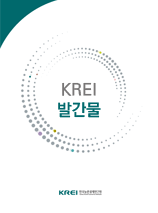


Environmentally friendly rice farming practices in Korea divide into three groups such as organic production with no synthetic pesticides of fertilizers applied, no-pesticide production not using pesticides, and low-pesticide production using low quantities of synthetic pesticides and with an approp...
Environmentally friendly rice farming practices in Korea divide into three groups such as organic production with no synthetic pesticides of fertilizers applied, no-pesticide production not using pesticides, and low-pesticide production using low quantities of synthetic pesticides and with an appropriate nutrient manage- ment. This paper discusses some methodological aspects important for the comparative analysis of the economic performance of rice farming practices, and gives an overview of the financial performance of environmentally friendly farming practices at farm level using the survey data. The revenues of environmentally friendly and conventional rice farms are compared, and then main factors influencing profitability, especially yields, price premium and production costs are discussed. The result shows that conversion payment for promoting environmentally friendly rice farming practices need to compensate for cost increment and/or income reduction during the three to five years within switching periods depending on the realization of farm-gate premium prices.
KREI의 출판물은 판매 대행사 (정부간행물판매센터)와 아래 서점에서 구입 하실 수 있습니다.
| 교보문고 | http://www.kyobobook.co.kr/ |
|---|---|
| 영풍문고 | http://www.ypbooks.co.kr/ |
| 알라딘 | http://www.aladin.co.kr/ |
| 상세정보 조회 | 좋아요 | 다운로드 | 스크랩 | SNS공유 |
|---|---|---|---|---|
| 13655 | 0 | 5 | 0 | 0 |